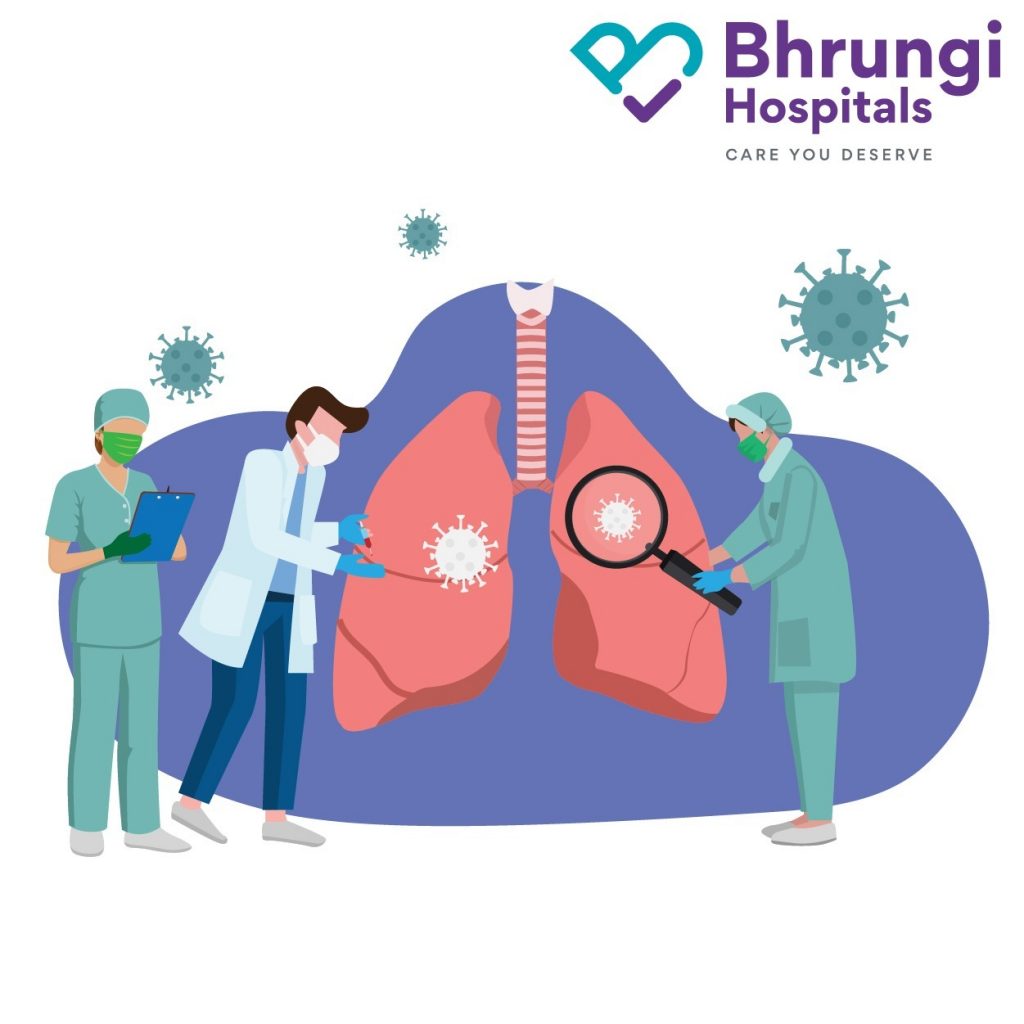If you have a chronic cough, shortness of breath, unexplained weight loss, or persistent difficulty sleeping, you may have a pulmonary condition requiring a pulmonologist visit. Top Pulmonologist In Hyderabad.
What is a Pulmonologist?
A pulmonologist is a specialized doctor who diagnoses and treats conditions and diseases of the respiratory system.
These healthcare specialists are commonly referred to as:
- lung doctors
- chest doctors
- lung specialists
A patient may be referred to a Pulmonologist if they exhibit symptoms of a respiratory illness. This includes acute infections such as pneumonia and chronic conditions such as chronic obstructive pulmonary disease (COPD) and asthma.
What exactly does a pulmonologist do?
A pulmonologist can diagnose and treat respiratory diseases. They may specialize in certain areas, such as critical care, asthma, or sleep medicine. They may also specialize in treating children (a pediatric pulmonologist) or the elderly (a geriatric pulmonologist)
What conditions are treated by pulmonologists?
They treat diseases and conditions of the respiratory system, particularly the lungs. Inflammation, tissue overgrowth, and infections can all contribute to these conditions. Many of these diseases may necessitate long-term, if not lifelong, treatment plans. Your pulmonologist will collaborate with your primary care physician and possibly other specialists on treatment plans.
Pulmonologists treat or manage the following illnesses:
- Allergic Bronchopulmonary Aspergillosis
- Asthma
- Bronchiectasis
- Bronchiolitis
- Bronchitis
- Bronchopulmonary Dysplasia (BPD)
- Chronic Obstructive Pulmonary Disease
- Coccidioidomycosis
- Cystic Fibrosis
- Infant Respiratory Distress Syndrome
- Interstitial Lung Disease
- Pleurisy
- Pneumoconiosis
- Pneumonia
- Pneumothorax
- Pulmonary Arterial Hypertension
- Pulmonary Embolism
- Pulmonary Fibrosis
- Pulmonary Hypertension
- Pulmonary Sequestration
- Sarcoidosis
- Sleep Apnea
- Tuberculosis
Numbers On Respiratory Diseases.
- Although India has 18% of the world’s population, it bears 32% of the global burden of respiratory diseases. In 2016, chronic respiratory diseases accounted for 6.4 percent of total DALYs (a globally recognized disease burden estimate calculated based on the number of productive life years cut short by disease) in India.
- 5.0 percent of adults diagnosed with COPD, emphysema, or chronic bronchitis in 2020.
- As reported on medical records, COPD visits to office-based physicians are 4.1 percentage points.
- 873,000 visits to emergency rooms by people with COPD.
How do Pulmonologists diagnose lung diseases?
Pulmonologists use tests to determine the type of lung problem you have. They may advise you to take the following tests:
Chest Ultrasound
Chest Ultrasound is a non-invasive diagnostic exam that generates images for evaluating organs and structures within the chest, such as the lungs, and determining the presence of excess fluid in the space between the interior wall of the chest (pleural space) and the lungs.
Lung Scan
A lung scan is an imaging test used to diagnose and locate blood clots or other small masses known as emboli in the lungs. Health care professionals may also use a lung scan to monitor treatment progress.
Bronchoscopy
Bronchoscopy is a diagnostic and treatment procedure. It allows a thin, lighted tube (bronchoscope) inserted through the nose or mouth to look directly at the lungs and air passages.
It can be used:
- to control bleeding
- remove foreign objects that get stuck in the airway
- take tissue samples
- perform procedures such as stents.
Pulmonary Angiogram
Pulmonary angiography is a test that determines how blood flows through the lung. Angiography is a diagnostic imaging procedure that uses x-rays and a special dye to look inside the arteries. It is typically used to detect and localize a pulmonary embolism or blood clot.
Spirometry
Spirometry is a standard test used by doctors to assess how well your lungs work. The spirometry test works by measuring the amount of air entering and exiting your lungs. To perform a spirometry test, you must sit and breathe into a small machine known as a spirometer. This medical device measures the amount of air you breathe in and out and the rate at which you breathe. It is typically used to diagnose asthma, chronic obstructive pulmonary disease (COPD), and other breathing-related conditions.
Peak Flow Measurement (PFM)
It is a quick test that measures the air flowing out of the lungs. It is helpful for people who have asthma because it helps them manage the condition better or see how well a treatment plan works. PFM is also used to evaluate other lung conditions such as emphysema and chronic bronchitis.
Transbronchial Biopsy (TBLB)
Transbronchial Biopsy (TBLB) is a procedure that involves inserting a flexible telescope (bronchoscope) through the nose and collecting pieces of lung tissue, which are then analyzed to determine the cause of breathing difficulties or a lung problem. When possible, TBLBs are preferred over open biopsies so that patients can benefit from low risk, quick recovery, and no scar techniques.
When would you have to see a pulmonologist?
If your regular healthcare provider cannot help you with your symptoms, or if they believe you would benefit from seeing a specialist, they may refer you to a pulmonologist.
Some of these signs and symptoms could be:
- Dizziness.
- Chronic cough (A cough that doesn’t improve over time).
- Wheezing.
- Shortness of breath (dyspnea).
- Chest pain or tightness.
A note from Bhrungi Hospital
Your respiratory condition could begin with a minor annoyance, such as a chronic cough. Therefore, we think it is good to get things checked out, especially if your doctor refers you to a pulmonologist. A pulmonologist can assist you in various ways and collaborate with other members of your healthcare professional team to help you make the best decisions for your health.









